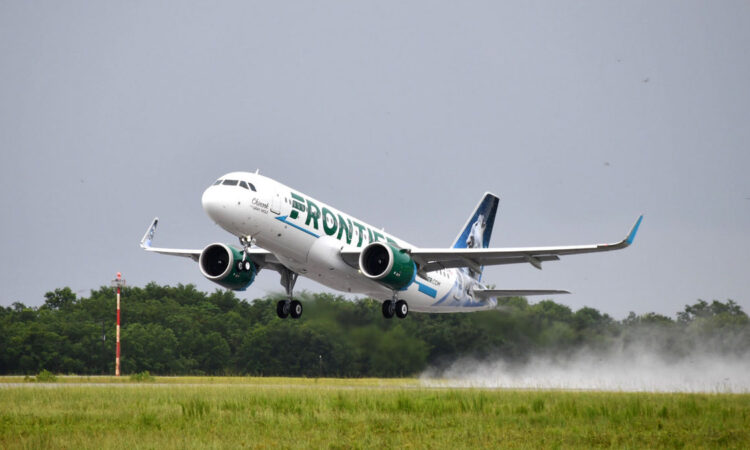ARLINGTON, Va. (AP) — A large number of Airbus passenger jets will need to have engines removed and inspected in the coming months after engine maker Pratt & Whitney discovered a problem with metal powder used in some parts.
Shares of Pratt & Whitney parent RTX Corp. fell 12% Tuesday afternoon after the company disclosed the issue.
“Pratt & Whitney has determined that a rare condition in powder metal used to manufacture certain engine parts will require accelerated fleet inspection,” RTX said in a press release. The engine involved is most often used to power the Airbus A320neo, a midsize jet popular for short and medium-distance flights.
Spirit and Frontier each fly approximately 80 A320neo jets.
The company said it expects that that about 200 of its PW1100 engines will need to be pulled off and inspected by mid-September, and another 1,000 engines will need inspections in the next nine to 12 months.
The disclosure was made as RTX, formerly known as Raytheon Technologies, reported second-quarter earnings of $1.3 billion, up 2% from a year earlier. After adjusting for one-time items, the profit came to $1.29 per share, beating the $1.18 consensus forecast of analysts.
Revenue rose 12% to $18.3 billion, topping analysts’ prediction of less than $17.7 billion, according to a FactSet survey. Pratt & Whitney accounted for about one-third of sales.
On a call with analysts, COO Christopher Calio said the “rare condition” in powdered metal used for some engine parts made between late 2015 and mid-2021 could reduce the life of those parts.
Pratt had planned to schedule “enhanced inspections” during normal maintenance stops. Based on recent discoveries, he said, Pratt decided that the inspections — focused on high-pressure turbine disks — need to be speeded up.
Calio said Pratt & Whitney is developing plans to conduct the inspections as quickly as possible. He added that current production is not affected by the problem, and the company will continue to produce new engines and spare parts.
Source: Read Full Article
